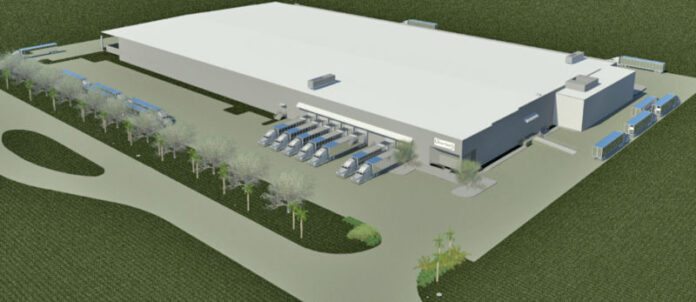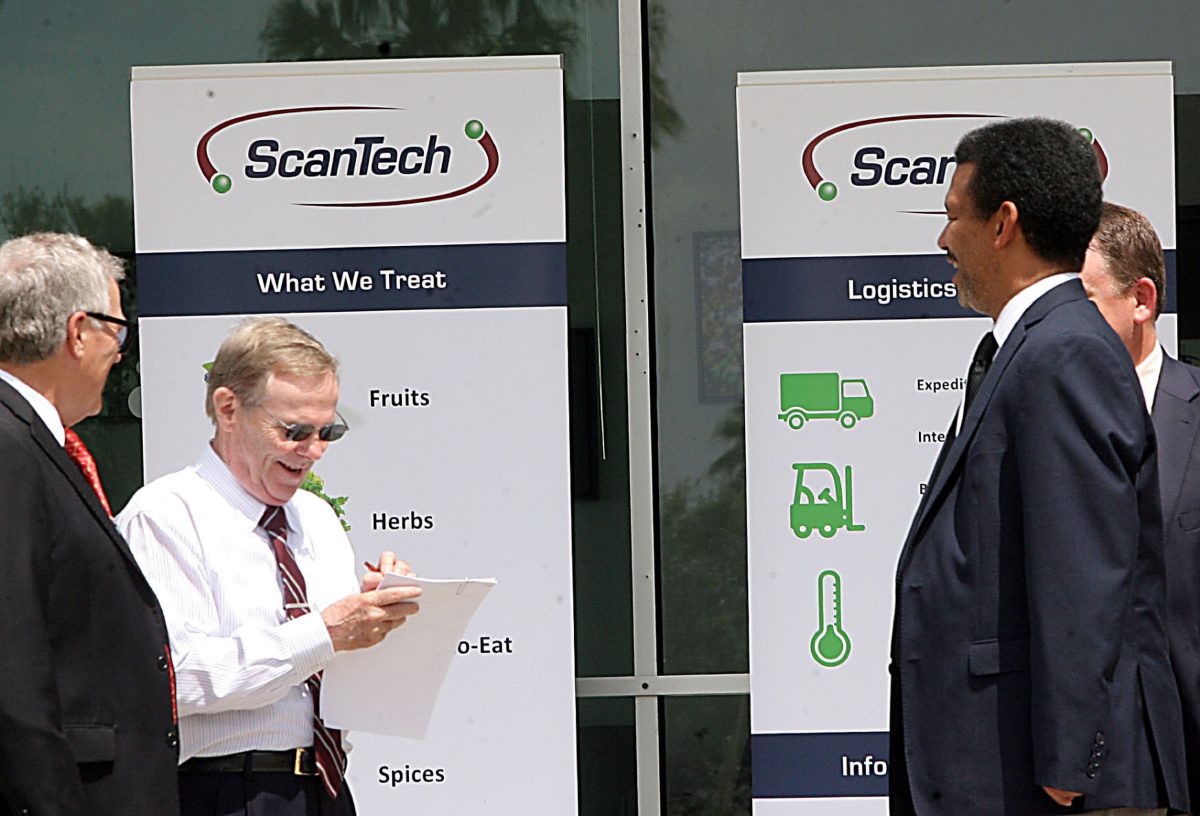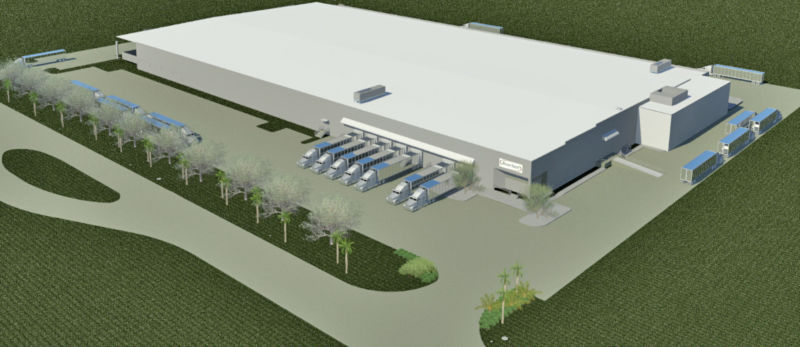McALLEN — Amid a time of uncertainty for business along the border, ScanTech is doubling down with a new technology they predict will revolutionize food safety practices.
McALLEN — Amid a time of uncertainty for business along the border, ScanTech is doubling down with a new technology they predict will revolutionize food safety practices.
ScanTech Sciences, a developer, manufacturer and operator of food treatment systems and facilities, already has a building in the Sharyland Business Park in McAllen. But the Atlanta-based company has never had an Electronic Cold-Pasteurization food treatment center before.
ScanTech began construction Thursday on a 100,000-square-foot facility connected to their current building. It’s expected to open, at the latest, by the beginning of 2018.
Bret Erickson, President of the Texas International Produce Association for the past five years, will be general manager of the new facility. He said Thursday that the new operation will create more than 170 jobs. ScanTech is putting nearly $30 million into this project.
CEO Dolan Falconer and COO Chip Starns, both nuclear engineers, were in town for Thursday’s announcement. Though the two have nuclear backgrounds, ECP is a non-nuclear methodology of irradiation that eliminates food-borne pests and pathogens and will add more than two weeks of shelf life to produce. ECP moves food through electron beams for milliseconds on a high-speed conveyor while maintaining the molecular structure of the produce, Erickson said, which is why there are not any risks to the process.
The facility will push through more than 40 trucks per day, with each truckload taking 35 to 40 minutes, Erickson added. ScanTech is the first company to receive USDA clearance to build this ECP food treatment facility, Starns said.
Falconer explained at an August conference in Pharr how ScanTech plays into the trade: produce is harvested in Mexico, repackaged and trucked off to the United States. Pest control currently does not happen on this side of the border, Falconer said in August. However, there are some measures, such as a hot water treatment, that U.S. Customs and Border Protection implement to trace certain insects and diseases. But those practices are general. ScanTech is specifically for produce.
Once produce crosses the bridge, often in this area it is the Pharr International Bridge, trucks then stop at distribution centers before taken to a retailer elsewhere in the U.S.
Trucks are registered with ScanTech and will have documents to show CBP, so there will be no produce pest treatment. Once they cross into the U.S., trucks will be in touch with ScanTech, which will also geo-track the trucks.
“There are 225,000 truckloads of fresh produce that come through Texas ports, with 65 percent coming through the Pharr Bridge,” said Erickson, who finishes his stint at TIPA in May and starts with ScanTech soon after.
“This is the future,” Erickson said. “It will change everything.”







